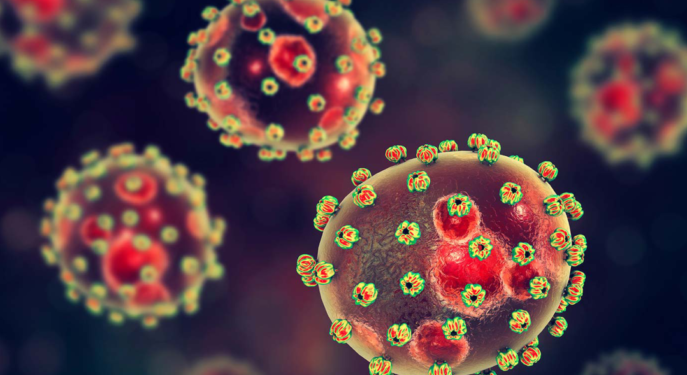The Nigeria Centre for Disease Control and Prevention (NCDC) has reported a decline in the new Lassa fever cases across the country, but warned that the fatality rate remains alarmingly high.
The NCDC, via its official website, said the remark in its latest Situation Report for epidemiological week 33 (August 11–17, 2025), and confirmed five new cases, down from 12, the previous week.
The agency said that the new infections were recorded in Bauchi, Ondo, and Edo States.
“So far in 2025, a total of 854 confirmed cases and 159 deaths have been recorded across 21 states and 106 local government areas.
“This represents a case fatality rate (CFR) of 18.6 per cent, higher than the 17.2 per cent reported in the same period last year,” it said.
The NCDC noted that 90 per cent of all cases came from just five states; Ondo, 33 per cent; Bauchi, 23 per cent; Edo, 17 per cent; Taraba, 14 per cent; and Ebonyi, three per cent, while the remaining 10 per cent were spread across 16 other states.
The Nigerian public health agency said the most affected age group remained the young adults between 21 and 30 years, with slightly more males than females affected.
The NCDC highlighted that while suspected and confirmed cases had dropped compared to 2024, challenges persisted.
It said that the challenges included late presentation of cases, poor health-seeking behaviour due to the cost of treatment, and poor environmental sanitation in high-burden communities.
The agency said that with partners including WHO, U.S. CDC, and local institutions, it had intensified response activities, ranging from clinicians sensitisation, community awareness campaigns, and distribution of treatment commodities to training of health workers.
It, further, said it had also deployed 10 rapid response teams to support states’ integrated Lassa fever risk communication into other viral haemorrhagic fever campaigns, and launched an e-learning platform on infection prevention and control.
NCDC urged states to sustain year-round community engagement on Lassa fever prevention, while healthcare workers were encouraged to maintain a high index of suspicion and ensure early referral and treatment of suspected cases.
Lassa fever is a viral haemorrhagic fever, common in West Africa, and caused by the Lassa virus, carried by Mastomys rats.
It spreads through contact with contaminated food, surfaces, or body fluids of infected persons.
Each year, an estimated 100,000 to 300,000 people contract the disease in West Africa. Most cases are mild, with symptoms such as fever, headache, fatigue, cough, or sore throat.
However, about 20 per cent of cases become severe, leading to bleeding, seizures, confusion, or organ complications.
Pregnant women face the highest risks, with over 75 per cent of infections resulting in pregnancy loss.
Survivors may also experience permanent hearing loss, even after mild illness.
Complications of severe Lassa fever include kidney failure, heart and liver inflammation, fluid build-up in the lungs, and life-threatening clotting disorders.
Without adequate infection control and protective equipment, the disease can also spread in healthcare facilities.
Lassa fever remains confined to West Africa, with no reported spread to the U.S. or other regions.
Countries most affected include Nigeria, Benin, Guinea, Liberia, Mali, and Sierra Leone.
(NAN)






